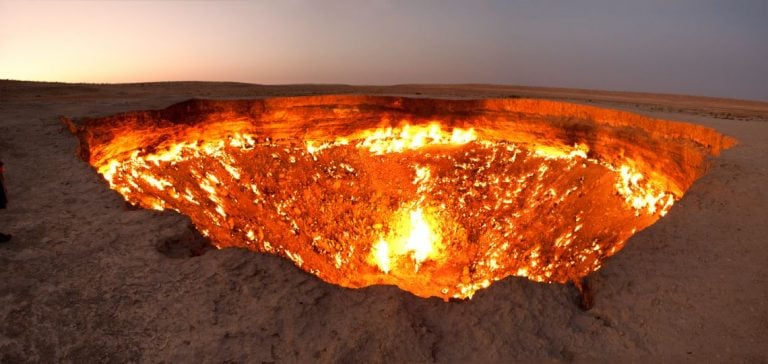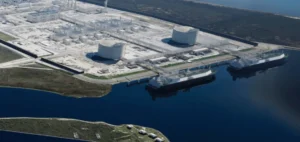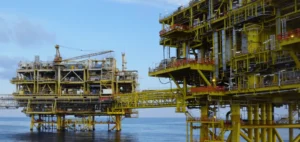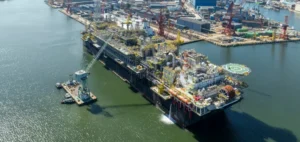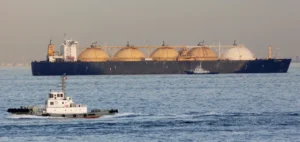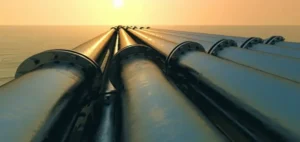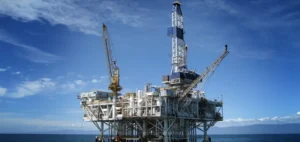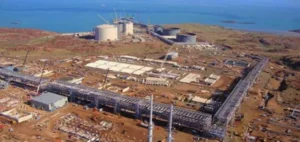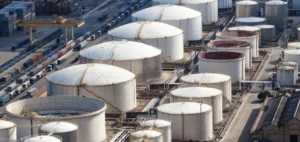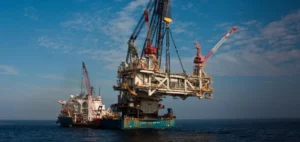For more than half a century, a burning crater known as the “Gates of Hell” has been ablaze in the heart of the Turkmen desert, releasing significant amounts of methane, a potent greenhouse gas. Located about 270 kilometers north of Ashgabat, Turkmenistan’s capital, this site resulted from a Soviet drilling operation in the 1970s that accidentally breached an underground gas pocket. To prevent toxic gas emissions, authorities at the time ignited the crater, hoping the fire would extinguish quickly. However, the flame continues to burn, continuously emitting methane into the atmosphere.
An Environmental Priority
Turkmen Gas Minister Maksat Babaïev recently announced at an energy conference in Ashgabat that the country is taking concrete steps to reduce emissions from this symbolic crater. “We have drilled a well at Darvaza to capture the gas,” he explained, adding that a second well is planned as part of these efforts. The goal is to capture the methane before it escapes into the atmosphere, thus helping to reduce Turkmenistan’s climate impact.
Turkmenistan, known for its vast natural gas reserves, ranks among the largest methane emitters worldwide. While methane has a shorter atmospheric lifespan than carbon dioxide, it possesses a much higher warming potential, making it particularly harmful to the climate. According to data from the International Energy Agency (IEA), the country is a major contributor to methane leaks, a problem that new monitoring technologies, notably satellites, allow for better tracking and quantification.
Initiatives to Mitigate Climate Impact
This recent initiative in Turkmenistan is part of a desire to show environmental progress, although the country remains one of the world’s most closed states regarding data transparency. In 2023, Minister Babaïev reported a 10% reduction in methane emissions compared to 2020, based on a report from the Paris-based environmental engineering firm Kayrros. This significant reduction is seen as a positive signal in a country often perceived as resistant to international climate concerns.
The commitment to close the Darvaza crater also reflects a growing awareness within the administration of President Serdar Berdymukhamedov, who appears to be striving to project a more responsible environmental image. By capturing methane rather than allowing it to burn, the government also aims to reduce the country’s environmental footprint while minimizing waste of this natural resource.
Growing International Pressure
The global focus on reducing methane emissions increases pressure on gas-producing countries like Turkmenistan. Methane, responsible for about 30% of climate warming since the industrial revolution, has become a priority in environmental policies, particularly in countries that signed the Paris Agreement. In 2021, several major powers, including the United States and the European Union, launched global initiatives to reduce methane emissions. In this context, Turkmenistan, though relatively isolated, cannot ignore international expectations regarding its climate responsibility.
Turkmenistan’s commitment to addressing the “Gates of Hell” issue may also play a role in improving its diplomatic relations, particularly with countries concerned about global climate issues. Methane leak management is now at the forefront of environmental concerns, and this initiative could improve the country’s international image.
Future Under Surveillance
Despite notable progress, experts remain cautious about the long-term impact of these initiatives. The issue goes beyond simply closing a crater: it involves rigorous management of natural resources and increased transparency to assess the effectiveness of undertaken measures. Advances in methane capture could also inspire other countries with significant natural gas reserves.
The Darvaza crater has thus become a paradoxical symbol of Turkmenistan’s energy potential and environmental challenges. The current initiative represents a first step toward better resource management while responding to the international community’s expectations for tangible climate action.

